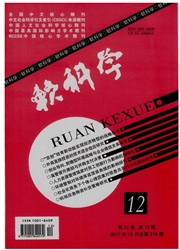

 中文摘要:
中文摘要:
基于因素分解法对我国1986~2013年节能因素进行分析,并将能源效率变化中技术进步的作用进行量化,在此基础上构建能源回弹效应模型对国家层面及三次产业的能源回弹效应进行比较分析。结果表明:技术进步对能源效率的提升具有决定性作用,产业结构调整抑制了能源强度的下降,对能源效率产生负向影响,能源结构调整也有助于能源效率提升,但是效果比较微弱;我国宏观经济的能源回弹效应表现为逆反回弹效应,且呈现阶段性特征,1986~2001年为部分回弹效应,2002~2013年为逆反回弹效应,技术进步的节能效果并不理想,而且近年来发挥的作用不断弱化;能源回弹效应在三次产业间的表现形式差异较大,第一产业表现为超级节能现象,第二产业表现为强逆反回弹现象,第三产业表现为部分回弹现象。
 英文摘要:
英文摘要:
In this paper, the effect of technological progress on energy efficiency is quantified based on analyzing energy sav- ing factors during 1986 to 2013 with decomposition method. Moreover, energy rebound model is adopted to estimate rebound effect in whole country and three major industries. The results show: technological progress is the key to improve energy ef- ficiency, industrial structural change exerts negative effect on energy efficiency, energy structural adjustment contributes weak effect on energy efficiency improvement; the macro -rebound effect is "backfire effect" and shows periodic character- istics. Energy rebound effect during 1986 to 2001 presents "partial effect" and "backfire effect" from 2002 to 2013, which show the energy saving effect of technological progress is not as effective as imagine, and the effect is gradually weakened in recent years ; Energy rebound effect shows great difference in three major industries, which is "super conversation effect" in primary industry, "backfire effect" in secondary industry and "partial effect" in tertiary industry.
 同期刊论文项目
同期刊论文项目
 同项目期刊论文
同项目期刊论文
 期刊信息
期刊信息
